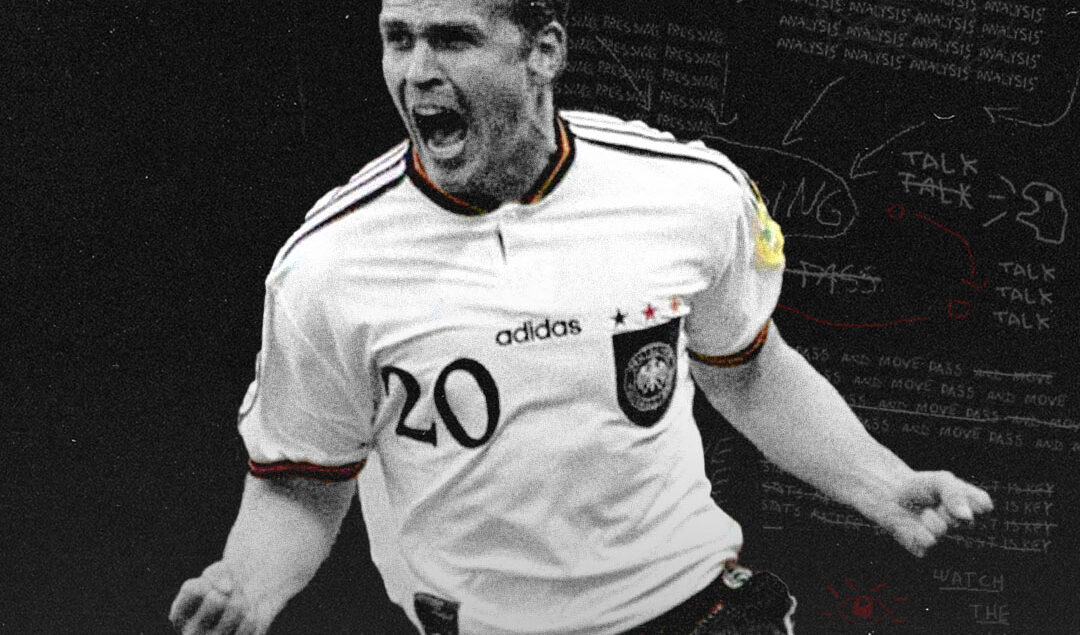Germany: The Curious Injury and Victory in the 1996 European Championship
Germany is one of the most successful teams in football history, known for its efficiency, discipline, and ability to overcome adversity. In the 1996 European Championship, the German team experienced a curious and memorable moment that still resonates with many fans: their victory in the final against the Czech Republic, marked by the injury of one of their key players and the subsequent use of the golden goal rule.
The 1996 European Championship was held in England, and Germany entered the tournament with a strong and well-organized team. The squad was full of talents like Jürgen Klinsmann, Matthias Sammer, and Andreas Möller, and was one of the favourites to win the tournament. Germany successfully advanced to the knockout stages, facing high-level competitors on their way to the final.
During the semi-final against England, one of Germany’s key players, Jürgen Klinsmann, suffered an injury that ruled him out of the final. This was a significant concern for the German team, as Klinsmann was a star forward and his absence was a considerable blow to the team’s aspirations.
Despite this adversity, Germany reached the final against the Czech Republic. The match was played at the historic Wembley Stadium. The Czech Republic took the lead with a penalty goal by Patrik Berger. However, Germany equalised with a goal from Oliver Bierhoff, who became the unexpected hero of the team.
The match extended into extra time, and it was here that the most curious and decisive moment occurred. At that time, the golden goal rule was in effect, meaning that the first team to score during extra time would automatically win the match. In the 95th minute, Bierhoff scored his second goal of the match, a golden goal, thus securing Germany’s 2-1 victory and giving them their third European Championship title.
Germany’s victory in 1996 not only marked their third European Championship title but also highlighted the importance of squad depth and the ability of players to step up in crucial moments. Klinsmann’s injury and Bierhoff’s heroic performance demonstrated the resilience and adaptability of the German team. This victory also reinforced Germany’s reputation as a team that knows how to win in the most important moments.
The use of the golden goal rule in the 1996 final was a historic moment, as it was one of the few times a major tournament was decided by this rule before it was abolished in 2004. This event is remembered not only by German fans but also by football fans worldwide as an example of the excitement and drama that football can offer.
Euro 2024 is upon us, and as such, @JJMont3ro will be guiding us through the decades & analyzing some of the greatest Euros stories from each of the 24 nations.
Today, we’re taking a look at the penalty drama and heartbreak of Switzerland’s 2008 campaign: https://t.co/0AQzAezHRn pic.twitter.com/6JI8wj4Vap
— Breaking The Lines (@BTLvid) June 12, 2024
As Germany prepares for EURO 2024, the story of the 1996 European Championship remains a source of inspiration. This anecdote highlights the importance of resilience, adaptability, and squad depth. In a tournament as competitive as the European Championship, these qualities can make the difference between success and failure.
The main lesson from this story is the importance of being prepared for any eventuality and maintaining calm and focus regardless of the circumstances. Germany can use the narrative of 1996 to motivate their players to be ready to face any challenge and not be discouraged by unexpected problems.
Germany’s victory in the 1996 European Championship, marked by Jürgen Klinsmann’s injury and Oliver Bierhoff’s golden goal, is more than just an anecdote; it is a testament to the resilience and determination of the German team. This event not only marked a milestone in German football history but also left an important lesson about the significance of adaptability and focus. As Germany prepares for EURO 2024, this story can serve as a powerful source of inspiration, reminding them that, regardless of the circumstances, they can always overcome challenges and achieve glory.
By: Juanjo Montero / @JJMont3ro
Featured Image: @GabFoligno / Richard Sellers / Allstar / Getty Images
